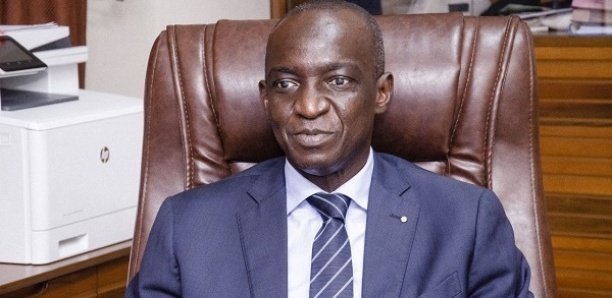Senegal in Good Health Despite Sluggish Growth in Africa

The economic situation in sub-Saharan African countries is not rosy. The IMF, which presented its report on the region’s economic prospects, notes that growth will slow sharply from 4.7% in 2021 to 3.6% in 2022. In the case of Senegal, growth was noted above the average of the countries of the region, between 4 and 5%.
A fairly strong economic slowdown in sub-Saharan Africa. This is according to the International Monetary Fund’s (IMF) Economic Outlook report entitled, « Living on the Edge ». Despite that, « the prospects in the WAEMU zone are stronger than the average in Africa ». In Senegal, for example, it was noted « growth above the average of sub-Saharan countries, between 4 and 5% ». Luc Eyraud, head of the Division of Regional Studies in the IMF’s Africa Department, invokes the fact that « some countries have good macroeconomic management, there is a level of support by governments for activity that remains quite strong ».
To this, Luc Eyraud adds the « difficulties of access to international markets ». A situation that, according to the expert, has led to the « rise in prices of basic products, food products that increase the import bill for many African countries ». In the report, it is noted that the « near-term outlook is extremely uncertain ». Sub-Saharan Africa, which has been hit hard by the crises, will, on the other hand, see its growth this year « slow sharply by more than 1 percentage point, to 3.6% ». The official of the Bretton Woods institution explains that » worldwide slowdown, tighter global financial conditions, and a dramatic pickup in global inflation spill into a region already wearied by an ongoing series of shocks. « . « In concrete terms, the outlook for the region is closely linked to developments in the global economy, while at the local level, the socio-political and security situation in many countries remains particularly delicate, » the report said.
Challenges Ahead
After painting this bleak picture, the IMF believes that « the measures taken should create the conditions for a sustainable recovery (to put oneself out of danger) ». Thus, the IMF says in its report, « Sub-Saharan Africa must respond to four main priorities for public policies. » The first, the report stresses, is to « address food insecurity ». Based on the fact that « 123 million people in the region are severely food insecure », the IMF notes that « rising food and energy prices are putting lives at risk ». Whereas, the IMF stresses, « This problem is a clear priority and the capacity of countries to rapidly expand social safety nets is often limited. » According to Luc Eyraud and his collaborators, « This is why some countries fall back on less well-targeted and expensive support measures ». The latter, they argue, « especially food aid, are probably needed in the current state of emergency. However, they should eventually be phased out and replaced by other, more targeted measures to ensure that scarce resources are channelled to those who need them most. »
On the second priority, the IMF advises countries to fight inflation. According to Mr. Eyraud, « Interest rates must be raised gradually, prudently, to ensure that inflation does not slip and become uncontrolled and rebalance public finance. »Regarding the third priority, noting that public debt in the sub-Saharan region « has increased very significantly », doubling over the last 10 years, the head of the IMF’s research division believes that « public finances must be rebalanced and, in some countries where debt is unsustainable, international creditors must be asked for a postponement of maturities and debt restructure ». As regards to the fourth priority, it suggests « creating the conditions for sustainable and greener growth ». According to the report, « Quality growth has always been a priority for the region, but the context for reforms has changed enormously as a result of climate change. » Thus, according to them, « Investing in resilient and green infrastructure has become increasingly important ». To achieve this, the IMF believes that « innovative private financing and energy sector reforms will be essential. To move beyond fossil fuel-based growth models. »
By Dieynaba KANE / dkane@lequotidien.sn

